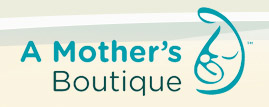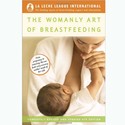If your child’s naps are shorter than an hour and a half in length, you may have wondered if these brief naps provide enough rest for your little one. You might suspect that these catnaps aren’t meeting your child’s sleep needs – and you would be right. The science of sleep explains why a short nap takes the edge off, but doesn’t offer the same physical and mental nourishment that a longer nap provides.
It takes between 90 and 120 minutes for your child to move through one entire sleep cycle, resulting in a Perfect Nap. It has been discovered that each stage of sleep brings a different benefit to the sleeper. Imagine, if you will, magic gifts that are awarded at each new stage of sleep:
Stage 1 – Very light sleep
Lasts 5 to 15 minutes
The gifts:
Prepares body for sleep
Reduces feelings of sleepiness
Stage 2 – Light to moderate sleep
Lasts up 15 minutes
-
The gifts:
Increases alertness
Improves motor skills
Stabilizes mood
Slightly reduces homeostatic sleep pressure
(The biological process that creates fatigue and irritability.)
Stage 3 – Deep sleep
Lasts up to 15 minutes
-
The gifts:
Strengthens memory
Release of growth hormone
Repair of bones, tissues and muscles
Fortification of immune system
Regulates appetite
Releases bottled up stress
Restores energy
Reduces homeostatic sleep pressure
Stage 4 – Deepest sleep
Lasts up to 15 minutes
-
The gifts:
Same benefits as Stage 3, but enhanced
Next Stage – Dreaming
Lasts up to 9 to 30 minutes
- The gifts:
Transfers short-term memory into long-term memory
Organizes thoughts
Secures new learning
Enhances brain connections
Sharpens visual and perceptual skills
Processes emotions
Relieves stress
Inspires creativity
Boosts energy
Reduces homeostatic sleep pressure
Longer naps
For as long as your child sleeps
-
The gifts:
Repeat all of the above stages in cycles

Cycles For Newborns Are Different
In order for your child to receive all of these wonderful gifts he must sleep long enough to pass at least once through each stage of sleep. Longer naps will encompass additional sleep cycles and provide a continuous presentation of gifts.
Newborn babies have unique cycles that slowly mature over time. A newborn sleep cycle is about 40 to 60 minutes long, and an infant enters dream sleep quickly, skipping several sleep stages. Infants need several sleep cycles to receive their full allotment of gifts. If your infant is sleeping only 40-60 minutes at naptime it is an indication that your baby is waking between cycles instead of returning to sleep on his own. We’ll cover a plethora of ideas to help your baby learn to go back to sleep without your intervention.
Now you can clearly see why a short nap doesn’t provide your baby or young child the best benefits of napping. You can also see why a mini-nap can fool you into thinking it is enough – since the very first five to fifteen minutes reduce feelings of sleepiness and bring that whoosh of second-wind energy that dissipates quickly, resulting is fussiness, crying, crankiness, tantrums and whining.
This is a copyrighted excerpt from The No-Cry Nap Solution: Guaranteed Gentle Ways to Solve All Your Naptime Problems by Elizabeth Pantley. (McGraw-Hill, December 2008).
-
Elizabeth Pantley is a mother, author, and parenting educator. Her books and parenting advice are frequently featured in magazines such as Parents, Parenting, American Baby, and Good Housekeeping. The following books are authored or co-authored by Elizabeth and recommended by A Mother’s Boutique: The No-Cry Discipline Solution, The No-Cry Sleep Solution, The No-Cry Sleep Solution for Toddlers and Pre-schoolers, The No-Cry Potty Training Solution, Gentle Baby Care, Hidden Messages, Perfect Parenting, Kid Cooperation, and The Successful Child.











great advice and info! wish i had known some of this when I was still breastfeeding and learning to put my little one down for naps. I did the no cry sleep solution and he is a good sleeper! the next one will be much easier
Thanks for posting this info! My child takes a ton of cat naps throughout the day. He’s definately not going through all the sleep stages.
It never even occurred to me that my newborn’s 15 min naps weren’t restorative or restful for him. I need to reevaluate our practices.
It’s great to move towards longer sleeps – but as the mom of two babies who had short naps (despite reading … and loving … Elizabeth Pantley’s book, “No Cry Sleep Solution”), we do have to remember that there are those who lay outside the norm, and “forcing” them into the norm may or may not work.
My daughter did 5 30-45 minute naps during the day until she was about 5-6 months old. At that point, the naps started to stretch a bit, but I never got more than 1.5 hours for a nap, and never more than one of these a day. My son was pretty much the same, although we handled it worse, because I hadn’t discovered Elizabeth Pantley yet.
Also, note that the cycles last “up to” 15 minutes. My suspicion is that my perfectly happy babies were having shorter cycles… until their nervous systems matured.
Many sleep patterns can be normal, between birth and 1 year. I would definitely say that if you aren’t getting longer stretches of sleep by 1 year, then get some help… But otherwise, that time warn adage still holds true: “This too shall pass”.